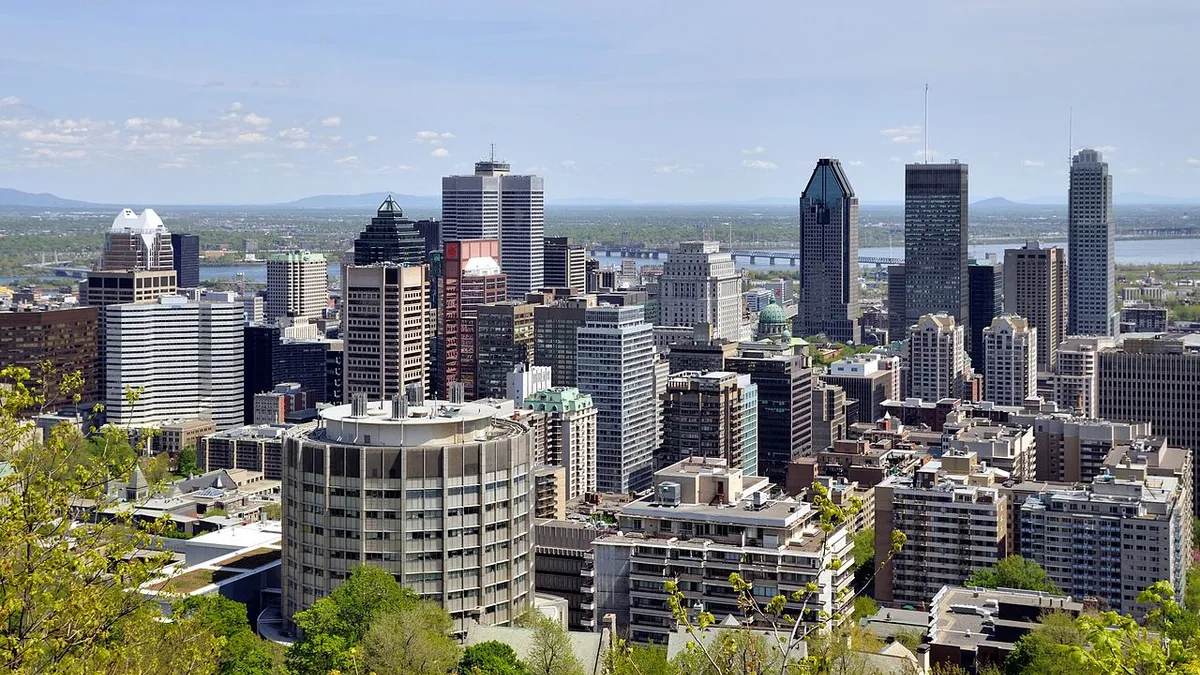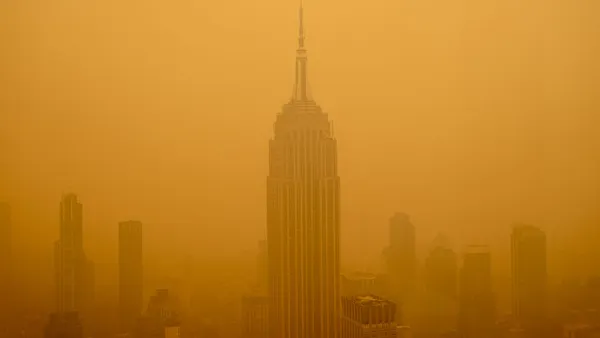Dive Brief:
- Researchers at Concordia University in Montreal had planned to conduct an inventory of private trees in a section of the city, but due to the suspensions of field work amid COVID-19, they are now asking residents to assist with the measuring.
- The project, led by Carly Ziter, assistant professor of biology in the Faculty of Arts and Science, asks residents in Montreal's Notre-Dame-de-Grâce (NDG) neighborhood to take photos of trees on their property, in addition to measuring the circumference of trees using string, shoelaces or other household materials. Residents can then identify the types of trees themselves through various apps or technology, or send them to the team at Concordia for identification.
- While the new execution of the project is not ideal, Kayleigh Hutt-Taylor, the lead graduate student on the project, told Smart Cities Dive it could offer another dimension of insights and help residents learn more about the urban forest. "We thought this might be the perfect opportunity for us to transition the project into engaging the public," she said.
Dive Insight:
Hutt-Taylor said the city already has a good understanding of the trees on public lands in parks and the public right-of-way, but that only illustrates half of the picture as about 50% of trees in the city's urban forest is on private land. Inventories like this one are key for understanding opportunities available in the city and where the gaps in information are, she said.
Tree inventories have become increasingly popular in cities throughout North America, and have been used as a tool in cities' fight against the effects of climate change. Los Angeles and Chicago are among the cities to put together tree inventories in recent years, with the former creating the new position of city forest officer to help plant more trees and unify departments responsible for the urban canopy.
Local efforts have caught the eye of national officials too. A 2018 study from the U.S. Department of Agriculture (USDA) Forest Service found the need for urban forests will continue to grow as cities use more land. Shortly after, three U.S. House members introduced The Residential Energy and Economic Savings (TREES) Act, modeled off a program in Sacramento, CA to offer homeowners or utilities free or reduced-cost tree-planting services.
Trees are key for biodiversity in cities by improving air quality, providing recreational spaces, reducing local temperatures in the summer, controlling stormwater runoff and being a natural habitat for various wildlife, Hutt-Taylor said. By taking stock of the types of trees and the functions they perform, she said it will help city leaders understand their impact more fully.
"It's true, these trees can provide so much to our communities, but in order to understand what they're providing us and how they're benefiting us, we have to know what's there," Hutt-Taylor said.
And if more property owners become invested in the state of the urban forest, Hutt-Taylor said it could be a good model to expand the tree inventory more widely across Montreal. Already, she said there appears to be enthusiasm among those involved to learn more.
"Ideally we would be able to say, these are the trees that are here, and this is how we can manage them better and this is how individual homeowners could be making an impact and improving our urban forest," Hutt-Taylor said.
To keep up with all of our coverage on how the new coronavirus is impacting U.S. cities, visit our daily tracker.












